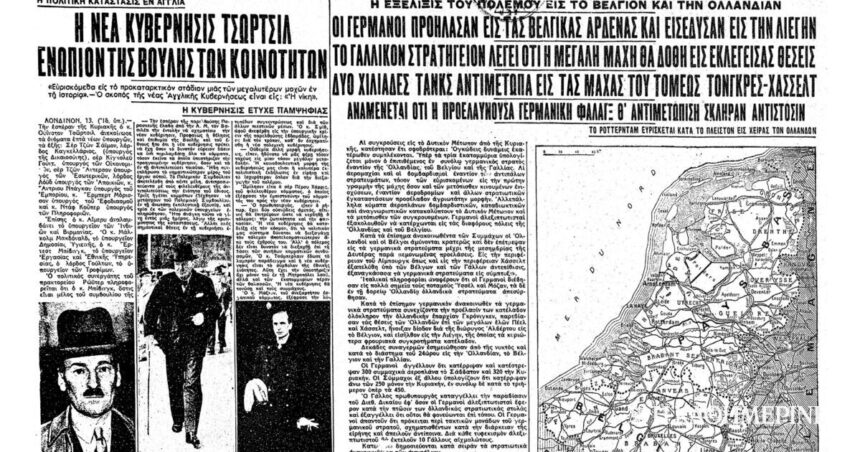Among the personalities who left an indelible mark on the history of the 20th century, Winston Churchill is undoubtedly included. His contribution to the Allied victory against the Axis powers was such that he received the nickname “father of victory”. In any case, he played an important role as a political figure during the first years of the Cold War, even being the originator of the term “iron curtain”.
Winston was born on 30 November 1874 at Blenheim Palace, the stately home of the Churchill family and seat of the Dukes of Marlborough, in Oxfordshire. His father was Lord Randolph Churchill, the scion of an aristocratic family and a prominent member of the Conservative Party of the United Kingdom. His mother was the American Janet Jerome, daughter of the banker and one of the shareholders of the New York Times, Leonard Jerome. In 1876, when Winston was two, his family moved to Dublin, as Randolph had taken over as private secretary to his father, John Churchill, 7th Duke of Marlborough, who had been appointed Governor of Ireland, then part of the United Kingdom . Little Winston, however, was brought up chiefly in the care of his governess, Mrs. Elizabeth Everest, who, in his own words, “was my dearest and most intimate friend during the first twenty years of my life.” .
In April 1888 he passed the Harrow School examinations. There he showed a strong interest in history, the study of which he never stopped studying. Following his father’s wishes, he entered the Military Academy as a cavalry officer cadet in September 1893. After graduation, he served in Cuba, India and the Sudan. At the same time, he also worked as a correspondent for British newspapers, developing his talent in writing texts. Returning to the UK, he wrote the book The River War, which centered on the occupation of Sudan by British forces.
In 1900 he was elected Member of Parliament for the Conservative Party. However, his disagreements with many of the Tory governments’ policy choices resulted in his leaving the party and joining the Liberals in 1904. He remained in the Liberals until 1924, when he rejoined the ranks of the Conservative Party. , in which he remained until his retirement from politics in 1955.
An important milestone in his political career was his proposal for the naval operation in the Dardanelles during the First World War. The failure of the operation resulted in his resignation as Secretary of the Navy and his partial removal from the center of UK decision-making in the following years. In the 1930s Churchill was one of the most vocal opponents of the appeasement policy towards Hitler pursued by the Conservative governments under Stanley Baldwin and Neville Chamberlain. On 10 May 1940 he succeeded Chamberlain as Prime Minister.
His first speech to the British Parliament as Prime Minister stands out, in which he emphasized his commitment to continuing the struggle against Hitler:
“I am telling the Parliament […] that I have nothing to offer my work up to blood, tears and sweat. […] If I am asked what our policy is, I say that it is to carry on the war, (cheers), the war by land, by sea and in the air, the war with all the means at our disposal and with all the power that God gave us, and to wage war against a monstrous tyranny, which exceeded the list of all dark and deplorable human crimes. (Cheers). This is our policy. If I am asked what our purpose is, I can give the answer in one word: It is Victory, (cheers), victory in spite of all sacrifice, victory in spite of all danger, victory, however long and hard the road to achieve it, because without victory the English empire and the ideals on which it is based cannot survive”.
His handling during the war made a decisive contribution to the victory of the Allies. After the war he supported the idea of the political union of Europe. At the same time, he blasted the policy of the Soviet Union in Central and Eastern Europe by speaking of an “iron curtain”, which Moscow raised in the regions where the Red Army entered and communist regimes were imposed, thus dividing the Old Continent in two.
He was elected prime minister for the last time in 1951. On April 5, 1955, he resigned from the prime ministership, retiring from political life, as the “Kathimerini” of that day wrote. He passed away ten years later, on January 24, 1965, leaving behind a huge political and literary legacy.
Column editor: Myrto Katsigera, Vassilis Minakakis, Antigoni-Despina Poimenidou, Athanasios Syroplakis






